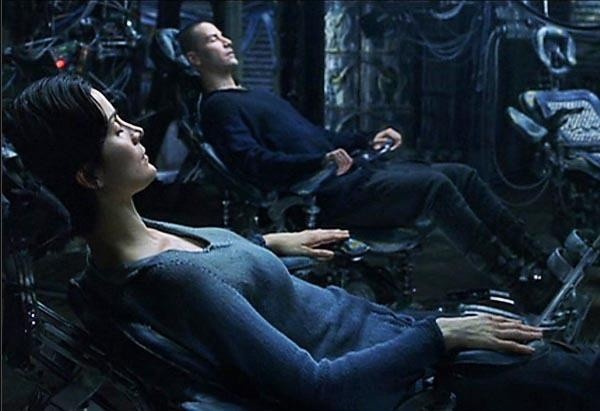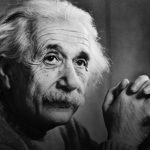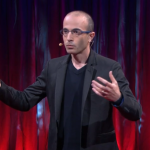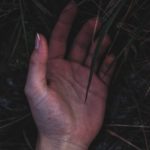How Do You Know You’re Not in the Matrix?
by Karlo Broussard
Filed under Man

At the heart of the philosophy of Aristotle and St. Thomas Aquinas is the idea that we come into contact with reality through the senses. But what if our senses are not a reliable source? Perhaps our senses are deceiving us, and everything we perceive isn’t real but is merely an illusion like in the movie The Matrix.
Descartes
This skepticism of sense knowledge was part of René Descartes’s methodic doubt, which many radical skeptics have adopted. Descartes argued:
Whatever I have up till now accepted as most true I have acquired either from the senses or through the senses. But from time to time I have found that the senses deceive me, and it is prudent never to trust completely those who have deceived us even once (Meditations, I, pp. 12f.).
Descartes’ point is, if our senses have deceived us before, how do we know our senses aren’t deceiving us now? One example Descartes gives as evidence our senses deceive us is the fact that objects at a distance look smaller than what they actually are.
But this is not deception. The sense of sight is reporting accurately what it perceives, namely the person appears small at a distance and then appears big when close up. As D.Q. McInerny says, “This is the sense of sight functioning just as it should, in order to give me a proper knowledge of distance” (Epistemology, 192). Error would come in only if one made the judgment, “That man is small and then becomes big.” Truth and falsity do not reside in sensory perception but in the act of judging that perception.
St. Thomas Aquinas makes the point this way:
Truth and falsity exist principally in the soul’s judgment. . . . Hence, a thing is not said to be false because it always of itself causes a false apprehension, but rather because its natural appearance is likely to cause a false apprehension (Questiones Disputatae de Veritate 1:10; emphasis added).
Another problem with Descartes’s reason for doubting sensory perception is that he relies on only one sensory power. It’s often the case that in order to test whether one sense is deceiving us, we must use another sense.
To use an example that many radical skeptics do to justify their doubt of sense knowledge, I may perceive the stick partially immersed in water as crooked. How do I determine if what I perceive is actually the case? I pick up the stick. When I do so I judge the stick is not actually crooked. But notice that in order to make a correct judgment about the stick, I employ another sensory power—namely, touch—that I must trust in order to make the proper the judgment.
With regard to Descartes’s example, in order to make a proper judgment about the size of the man walking up the street, Descartes would have to make contact with him through the sense of touch and measure him in order to determine that he is not small, which requires trust in sense knowledge.
Furthermore, Descartes’s recognition of the man’s small stature as unusual presupposes his trust in his previous sensory experience of the man’s tall stature. As Ralph McInerny notes, “[Descartes] must trust his senses in order to doubt them” (A First Glance at St. Thomas Aquinas, 37).
So, if it’s reasonable to trust sense knowledge, and the senses put us into contact with the world outside the mind, then we can have certitude that what we perceive is objectively real.
Dreams
The appeal to dreams is another way radical skeptics attempt to undermine trust in the senses. Taking their cue from Descartes again, they argue, “How do I know I’m not dreaming right now?” We can respond in two ways.
First, we experience ourselves being awake. As such, the skeptic must shoulder the burden of proof and not merely make an assertion (as Descartes did) but give reason to believe we’re not awake.
Second, in order to determine if our experience is a dream state, one must be able to identify a dream state. But as the philosopher Kenneth Gallagher explains, one can identify a dream state only by comparison with our waking consciousness:
It would be literally nonsensical to ask: how do I know that waking is not what I ordinarily mean by dreaming, because if it were, I wouldn't know what I ordinarily mean by dreaming (The Philosophy of Knowledge, 41].
Conjecture about whether waking is dreaming is literally of no practical use. If our waking is dreaming, then there is no point in talking of dreaming.
Malignant power
Some skeptics may argue that our defense of sense knowledge assumes our sensory and cognitive faculties are real. Following in the steps again of Descartes, they argue, “What if our perception is merely the product of a malignant being manipulating our sensory and cognitive powers, thus making our experiences and knowledge mere illusions?”
Look, just because it is logically possible that we are being deceived by a malignant power does not mean it is plausible. Logical possibility means only that there is no logical contradiction. Plausibility is present whenever there are good reasons for thinking something to be the case. Are there any good reasons to think we are being deceived by a malignant power? The obvious answer is no.
Second, the only possible way to settle the question is to use the very faculties that are being called into question. It is impossible to reflect upon our sensory and cognitive faculties apart from their activities. As the late philosopher Peter Coffey writes:
[C]ognitive faculties cannot be tested or examined in themselves and abstracting from their activities: whatever we know or can know about the nature of the mind and its faculties we can know only through their activities: there is no other channel of information open to us (Epistemology vol. I., 93).
If doubting our cognitive faculties presupposes their use, then there is no way to question their validity.
Finally, the objection is subversive of the argument itself. If the skeptic is correct, then it’s possible the soundness of the skeptic’s argument is yet another illusion generated by the malignant power.
Conclusion
The attempt by radical skeptics to undermine the perennial philosophy of knowledge as found in Aristotle and Aquinas can be a major stumbling block for the pursuit of truth. But showing how one cannot doubt the senses without trusting them, and eliminating the possibility of our waking state being a dream state along with the possibility of manipulation by a malignant power, can remove the stumbling block and open the path to knowledge of the real.
Related Posts
Note: Our goal is to cultivate serious and respectful dialogue. While it's OK to disagree—even encouraged!—any snarky, offensive, or off-topic comments will be deleted. Before commenting please read the Commenting Rules and Tips. If you're having trouble commenting, read the Commenting Instructions.












